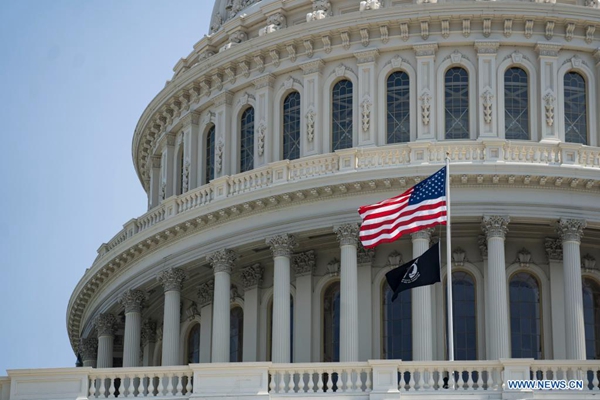Why the US' new Asian economic framework will end in failure
- By Tom Fowdy
 0 Comment(s)
0 Comment(s) Print
Print E-mail China.org.cn, May 25, 2022
E-mail China.org.cn, May 25, 2022

The United States has launched a program for Asian countries that it calls the "Indo-Pacific Economic Framework" (IPEF). According to the White House, this framework will seek to "set the rules of economic engagement" in the region, particularly concerning investment, technology, and supply chains. It comes amidst a drive by the United States to increase its economic presence in Asia.
However, there is no actual substance as to what the IPEF actually represents in real terms, other than being a slogan that facilitates the bizarre rendering of a country that is not based in Asia or physically present in the regional economy, attempting to dictate the "rules" of how the game ought to be played.
China is the regional nexus and hub of trade in the Asia-Pacific region. This is not a product of politics; it is a product of geography. As the largest and most populous country in the region, China naturally possesses the largest import and export market in Asia, making it the biggest bilateral trading partner of every country around it.
Such heavily overlapping forms of trade subsequently create legal pressures for standards and regulations to be harmonized between countries, which drives the process of what is known as "regional integration" – when countries pool and coordinate aspects of governance together on matters of mutual interest. This process of regional integration is what has driven the Regional Comprehensive Economic Partnership (RCEP) free trade agreement, as well as China's bilateral free trade agreements with most countries in the region.
Moreover, China is also negotiating entry to the Comprehensive Progressive Trans-Pacific Partnership (CPTPP) free trade agreement as well as a digital trade agreement with the region. Other countries in the region see obtaining such agreements with China as critical to securing their economic and regulatory interests.
However, the United States is currently not present in any major trading blocs within the Asia-Pacific region, partly because its policy is focused on "America First" principles that espouse opposition to free trade on the premise that it erodes American manufacturing competitiveness and jobs.
Despite this, the United States is obsessed with creating a regional and ideological competition in Asia at all costs in the name of containing its rival, seeking to divide the region into competing blocs. As a result, the United States believes that it should dominate the region economically, and that it ought to have the greatest say in its future.
As a result, the IPEF is an effort by the U.S. to try and set the rules of the region instead of actually integrating with it economically. The so-called framework is actually not a free trade agreement, a treaty, or an institution or multilateral body of any substantial substance; it is merely a set of rules and principles which the U.S. thinks it can utilize to isolate China.
In practice, this is nonsensical because it ignores the realities of both geography and economics and is based solely upon ideology. Moreover, by doing so, the U.S. undermines hard-won regional peace and stability over the past decades. Such a slogan-driven policy is almost undoubtedly going to end in failure.
The United States believes it can dictate the future of a region while exempting itself from making serious economic commitments in the name of self-interest. That's not how things work, and there is no scenario whatsoever whereby the nations of greater Asia can envision an economic future for themselves that does not include a robust partnership with the world's second-largest economy.
Tom Fowdy is a British political and international relations analyst and a graduate of Durham and Oxford universities. For more information please visit:
http://www.china.org.cn/opinion/TomFowdy.htm
Opinion articles reflect the views of their authors, not necessarily those of China.org.cn.
If you would like to contribute, please contact us at opinion@china.org.cn.






Go to Forum >>0 Comment(s)